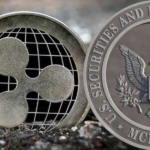
Ripple Triumphs Over SEC Confirming its Non-Ownership of XRP Ledger
- Antwan Koss
- October 7, 2023
- Altcoin, Crypto
- Ripple, SEC, XRP Ledger
- 0 Comments
In a significant development, the New York federal court denied the SEC’s appeal in the SEC vs. Ripple lawsuit, providing clarity that Ripple does not own the XRP Ledger (XRPL).
Key Takeaways
- A pivotal ruling denies the SEC’s interlocutory appeal against Ripple.
- Ripple, distinctly, does not own the XRP Ledger, as per the court statement.
- The decision grants XRP the unique status of legal clarity in the U.S.
- Ripple’s other XRP distributions were ruled to not breach securities laws.
In a landmark decision, the New York federal court not only denied the SEC’s motion to certify an interlocutory appeal in the SEC vs. Ripple lawsuit but also delivered a defining clarity concerning the status of XRP Ledger (XRPL) and its native cryptocurrency, XRP. Legal circles and cryptocurrency enthusiasts have been lit abuzz with the revelation, positioning XRP as the sole altcoin presently enjoying clear legal standing in the United States.
🤯🤯 This is what we call – CLARITY.
Today was a good day.#XRP #XRPCommunity #XRPHolders pic.twitter.com/iPMD7Lszge
— 𝟸𝟺𝙷𝚁𝚂𝙲𝚁𝚈𝙿𝚃𝙾 (@24hrscrypto1) October 4, 2023
Ripple Vs SEC Updates
The ruling comes as a sigh of relief for many in the Ripple community and has been spotlighted by Attorney John Deaton as holding substantial significance for the cryptocurrency’s status. It unravels amidst an ongoing and keenly watched legal tussle between Ripple and the SEC, wherein the latter’s recent bid for an immediate appeal in the case was straightforwardly thwarted.
The astute observation by “24HRSCrypto,” a notable XRP enthusiast, brought to light an excerpt of the ruling that underscores a crucial aspect: Ripple does not possess ownership of the XRP Ledger (XRPL). The excerpt hailed as providing “clarity,” points out that the SEC was unable to provide evidence that Ripple’s exploration of use cases for the blockchain offers “tangible consideration to Ripple.”
Moreover, in response to SEC’s allegations that Ripple’s other distributions of XRP violated securities laws, the court highlighted its July 13 decision. It was emphasized that the judgment on Ripple’s other distributions was based on the application of the Howey test to the case’s specifics, thereby dismissing claims of securities law breaches.
Concluding Thoughts
This pivotal ruling does not merely serve as a legal vindication for Ripple but additionally casts a spotlight on the intricate and, at times, contentious relationship between cryptocurrency entities and regulatory bodies. The legal clarity around XRP may potentially usher in a new chapter, not only for Ripple but for the broader crypto industry in the U.S., by setting a noteworthy precedent.
The focus on whether the development of blockchain use-cases provides “tangible consideration” to a company like Ripple signals a need for more nuanced regulatory frameworks in the crypto space. As we move forward, it’s imperative that legal and regulatory frameworks evolve in tandem with technological advancements to provide clear, fair, and informed rulings in similar future cases, fostering innovation while safeguarding investor interests.





